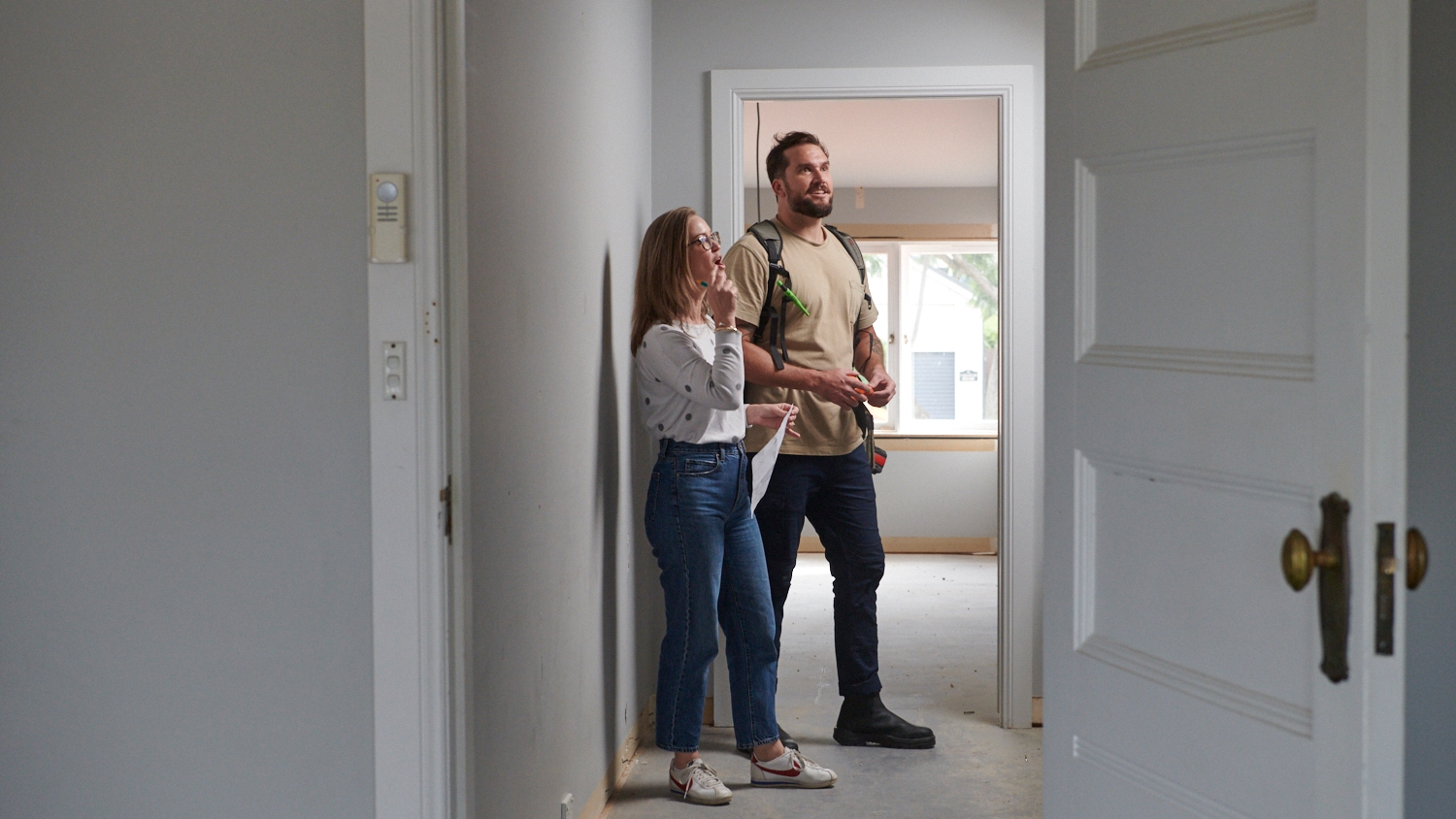Kickstarting your home renovation project:
Tips on how to plan and budget

Last updated: 8 May 2024 | Estimated read time: 6 Minutes
Navigate this article
Renovation costs | Renovation finance | How to plan | Top tips
Renovating can breathe new life into your property without the hassle of relocating or moving to a new area. Plus, it can be a lot of fun and something to be proud of – after all, you’ll be designing and co-creating the place you call home.
How much money do I need to renovate a house?
This depends entirely on the scope of the renovation. Are you doing just one room, adding a new kitchen, or undertaking a large extension and building an additional floor or extension?
Renovating a kitchen or bathroom can start at $10,0001 and go up substantially depending on the size of the room and chosen finishes. Don’t forget, if you manage to source cheap cabinets or fittings you’ll still need to get them installed by a professional.
It’s important to decide how you want to pay for your renovation, as it will impact the overall cost and availability of funds. Will you take out a personal loan, refinance, or use your savings?
A personal loan
To help finance small or medium renovations, you could take out a personal loan. Typically, you can borrow from as little as $5,000 up to $50,000 with Pepper Money – this could be an option if you want to spruce up a bathroom or kitchen.
Although unsecured personal loans usually come with a higher interest rate than a home loan, taking out a personal loan could be quicker than refinancing your existing home loan with your existing lender or a new lender.
Refinancing
If you’ve been in your property for a while, you may be able to refinance your home loan, allowing you to tap into your equity. A quick refresh - equity is the difference between your outstanding loan balance and the current lender assessed value of your property. Subject to a lender’s credit assessment and lending criteria, you may be able to refinance up to 80% of the value of your property to pay for renovations.
Refinancing your home loan could allow you to pay for your renovation at home loan interest rates which would usually be more competitive than the interest rates charged on an unsecured personal loan.
There are three common ways you can use refinancing to fund your renovation; cash out, progress payments or with your savings.
A guide on how to plan your home renovation
Renovating a home is exciting but it can also feel a bit daunting. After all, you want to create your dream home without breaking the bank. That’s why it’s important to have a realistic idea of what things will cost before you start swinging the hammer.
1. Scope your project
Before you get out the sledgehammer or order a kitchen benchtop, it’s best to take the time to think through everything you may need. Do you already have products in mind – if so, is there a lead-time attached, or are they in stock? Can your renovations rely on DIY, or will you need licenced tradies to do the job? Equally, with larger renovations, you may need council, strata or lender approval. All these take time, so it’s crucial to get everything co-ordinated before getting started.
2. Plan your renovation budget
If you’re using a loan for your renovation, then chances are you’re taking on a bigger project, so planning and budgeting will be key. Depending on your priorities and the complexity of the renovation, you can also encounter unexpected expenses such as electrician and plumbing costs.
And one more thing - it could be a good idea to plan in an extra buffer on top of your budget to cover unforeseen costs.
3. Look for peer support
There’s no harm in asking for help or seeking guidance. And if you don’t have a seasoned renovator in your family or friendship group, you could turn to online forums (such as Homeone’s Home Renovation & Building Forum) to seek advice. You’ll be amazed at the wealth of knowledge offered up – and they may even offer you that extra bit of inspiration you hadn’t thought of.
4. Quote and compare
It’s a good idea to ask suppliers to provide a breakdown of labour and material costs so you can see where any potential savings might be found.
5. Don't forget a plan B
Plan everything – and it’s good to have a contingency. It can help to have an alternative if one part of your plan can’t go ahead. You’ll be able to quickly adapt and re-route your renovation to plan B.
Your initial idea might change or grow along the way as you get quotes from professionals, scope out materials and begin the loan approval process (if needed).
The power of paint
Replace small fixtures and fittings
Accentuate with accessories
Don’t be afraid of marketplace
Not everything has to be bought new! Shop around to see what options you can find for either used or ex-demo furniture. You may be able to achieve your desired look at a fraction of the cost.
Sources
1How Much Does it Cost to Renovate your Home? [2024]: https://hipages.com.au/article/renovation_guide_how_much_does_it_cost_to_renovate
2 How Much Do Painters Cost? [2024]: https://hipages.com.au/article/how_much_do_painters_cost
You are protected by responsible lending laws. Because of these protections, the recommendations given to you about home loans are not regulated financial advice. This means that duties and requirements imposed on people who give financial advice do not apply to these recommendations. This includes a duty to comply with a code of conduct and a requirement to be licensed.
All loan applications are subject to the lender completing responsible lending checks and considering the borrower’s individual circumstances. Terms, conditions, fees and charges apply. Information provided is factual information only and is not intended to imply any recommendation about any financial product(s) or constitute tax advice. If you require financial or tax advice you should consult a licensed financial or tax adviser.
© Pepper New Zealand Limited NZBN 9429031065153 | NZ Company Number 3416551



